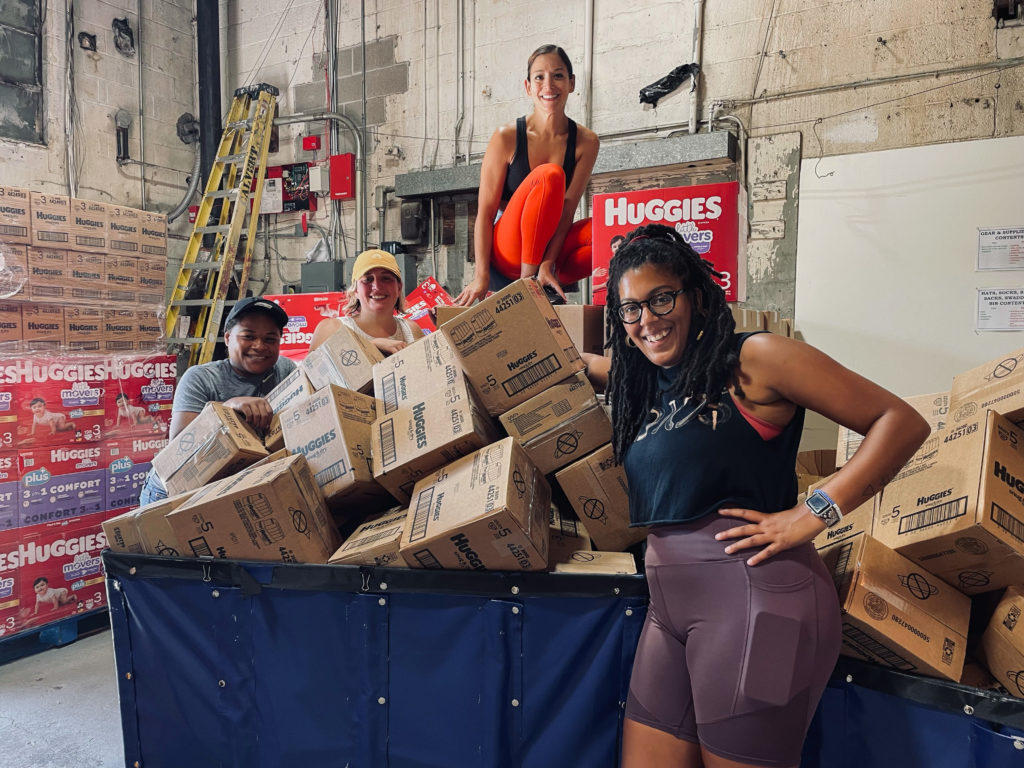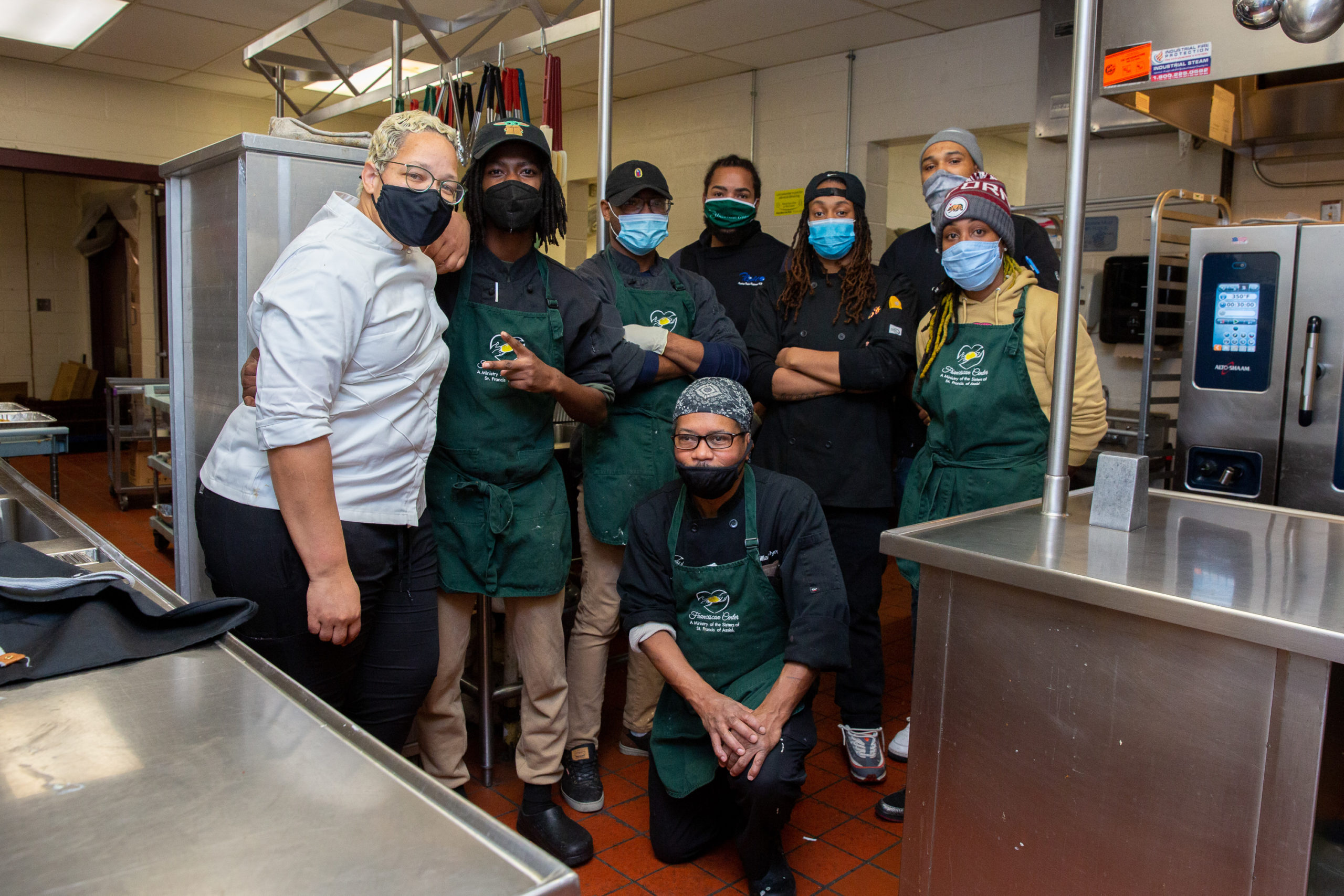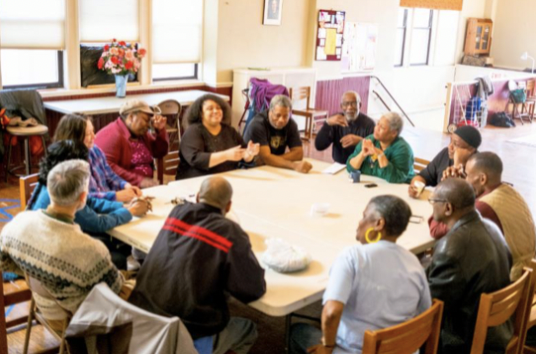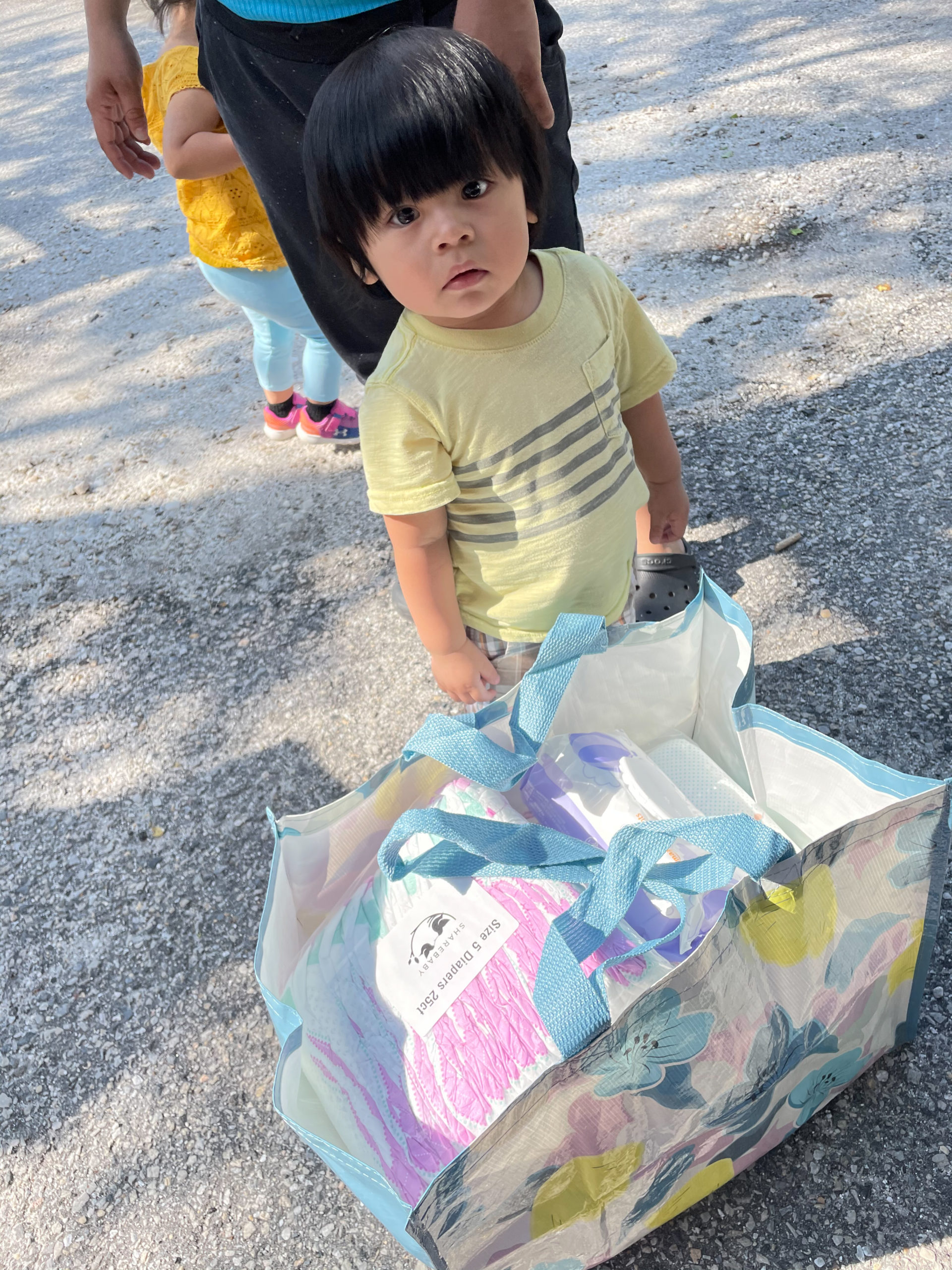The COVID-19 crisis illustrated just how fragile, and how essential, Baltimore’s safety net is. Even before the pandemic exposed extensive needs for food, shelter, and access to health care, many in our city struggled to meet their own, and their families’, basic needs. By all accounts, the economic and health impacts of the pandemic have exacerbated those needs.
According to the United Way of Central Maryland’s 2021 COVID-19 Impact Survey, almost 30% of respondents reported that a member of their household lost a job or experienced a temporary layoff during the pandemic, and 45% of families below the United Way’s “ALICE” income threshold – those who have income above the federal poverty level but do not earn enough to afford the basic cost of living – had experienced either temporary or long term job loss during the pandemic. These job losses contributed to sharp increases in food insecurity in Baltimore and throughout the state, reflected in increased applications for SNAP (food stamp) benefits. Maryland Hunger Solutions reported that 855,000 Marylanders were enrolled in the SNAP program as of July 2020, the highest number of participants in the state’s history.
Moreover, a 2021 report by the U.S. Department of Agriculture highlighted a growing racial gap in food access in the U.S., with 21.7% of Black households experiencing food insecurity, compared to 7.1% of white households. Food insecurity is highly stressful for families, forcing many to make impossible choices between purchasing food, paying the rent or utilities, refilling needed prescriptions, purchasing diapers and other baby supplies, or obtaining health care.
Fortunately, Baltimore has many community-based organizations that are dedicated to helping families in crisis meet their basic needs by distributing food, supplies, and flexible financial assistance. The Abell Foundation has a long history of supporting these organizations, which play a vital role in sustaining Baltimore’s most vulnerable residents. Here we highlight three such organizations:
Franciscan Center
Founded in 1968 by the Franciscan Sisters of Baltimore, the Franciscan Center is an emergency outreach center that serves individuals and families who are homeless or at risk of becoming homeless, including many who are employed but don’t earn enough money to cover their household expenses. The center provides a hot, mid-day meal Monday through Friday and dinners on Tuesdays and Wednesdays, and provides counseling, financial assistance, and related services to low-income Baltimore City residents. Financial and support services include utility assistance and eviction-prevention grants, procurement of birth certificates and identification cards required for government benefits, prescription assistance, transportation assistance, and dental assistance. In addition, the center’s social workers make referrals to other agencies, including health care and housing agencies, to address client needs that cannot be met at the center.
When the pandemic arrived in March 2020, the Franciscan Center significantly increased its meal production to meet the needs of the many Baltimore residents who had lost their jobs and needed assistance. The Center shifted to an outdoor meal service on site, and partnered with over two dozen organizations to deliver food to people in need throughout the City, nearly tripling the amount of food it provided to Baltimoreans struggling with hunger. The Center also increased its focus on conducting outreach to the city’s homeless population, hiring a community navigator who visits homeless encampments and working with the Mayor’s Office of Homeless Services to assist individuals living in the encampments to access housing. At the same time, the Center continues to provide financial assistance to clients to prevent evictions, pay for prescriptions, and secure birth certificates and other personal documents that are needed to qualify for government assistance programs.
Samaritan Community
Founded in 1970 as a soup kitchen sponsored by the Memorial Episcopal Church in Bolton Hill, the Samaritan Community’s services have expanded over the past 52 years to meet the evolving needs of low-income residents in crisis. Current services include a food pantry, clothing shop, emergency financial assistance, individual and group counseling, and referrals to other agencies for services that the Samaritan Community does not provide. The center’s staff works with each client to address the issues that led to crisis, whether unemployment, addiction, mental health disorders, or education barriers. Flexible financial assistance is available to address client needs, which may include paying rent or utility bills, purchasing prescription medications, or paying for employment-related expenses.
In 2021, the Samaritan Community provided food, clothing, counseling, case management and financial assistance to 310 households. The center also provided approximately $140,000 in financial assistance to help clients and their families with rent, utilities, medical care, employment/education, transportation, legal help, personal supplies, and other basic needs.
ShareBaby
ShareBaby is part of a national network of “diaper banks” that distribute diapers and other essential baby supplies to families in need. Diaper need, or the inability to purchase an adequate supply of diapers, is a hidden problem faced by many low-income families. Diapers are not an allowable expense under any public safety net programs, and families who lack access to large grocery stores or “big box” stores often pay inflated prices for diapers purchased at corner stores. Diaper need negatively impacts families in several ways: It increases health risks for babies, causing diaper rash and urinary tract infections; it can prevent parents from accessing child care because many child care providers require parents to supply a minimum number of diapers on a weekly or monthly basis; and it is a leading cause of parental stress and depression.
ShareBaby addresses this problem by soliciting donations of diapers, wipes, clothing, and other essential items from community members, corporations, and national partners, and distributing these items through a network of over 60 community-based partner agencies, which in turn distribute the items to families in need. During the first six months of 2021, ShareBaby distributed more than 1 million diapers and other items, which reached more than 11,000 children. ShareBaby’s five staff members are supported by a network of over 3,000 volunteers who assist with soliciting donations and sorting and packaging items for distribution. ShareBaby works with a broad range of partner organizations in Baltimore, including homeless service and domestic violence programs, Judy Centers, home visiting programs, and programs serving refugees and asylees, to provide these essential items to families for whom the cost of diapers can be an insurmountable expense.
Photos courtesy of ShareBaby, Franciscan Center of Baltimore, and Samaritan Community.



